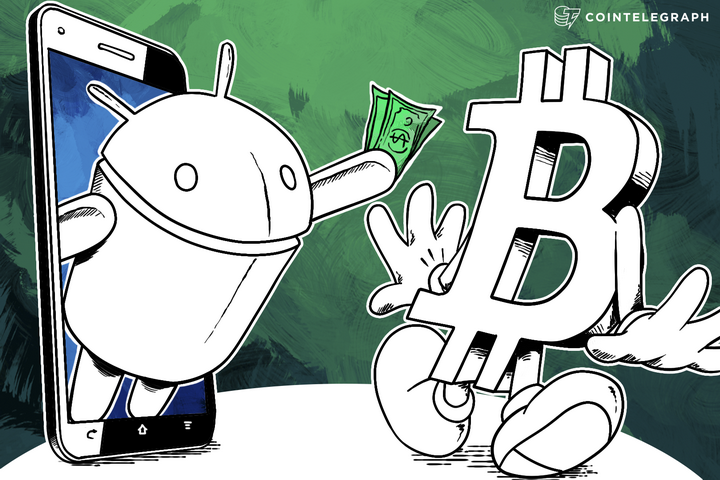Google has announced its latest foray into the exploding mobile payment market with Android Pay.
Android Pay is, in effect, a follow-up to the struggling Google Wallet brand, which has never caught on since 2011. It joins a market that includes Apple Pay, PayPal, MasterPass, and Visa Checkout. Android Pay will work with any Android phone that is equipped with an NFC (Near-field Communications) chip and KitKat operating system, or later.
Pali Bhat, Google’s Director of Product Management, said in a press release:
“Mobile payments is a big priority for Google, so we’ve been working with major networks like MasterCard to help provide a seamless experience across a wide range of phones and stores. Android Pay will offer people further simplicity, security and choice when paying for things with their Android phones.”

To enter this payment market, Android Pay has the requisite partnerships with the establishment’s payments leaders: Amex, Discover, MasterCard and Visa. To enhance the security of adding a consumer’s debit or credit card to the program, biometric fingerprint scanners are there to allow transactions to take place. Mastercard supports Apple Pay and now Android Pay, and noted the card number is not released to merchants during transactions, like Apple Pay.
With over three million merchants worldwide using the MasterCard Digital Enablement Service for options like MasterPass, contact-less payments are becoming a more common option in traditional commerce. Visa is also releasing the very similar-sounding Visa Digital Enablement Program, facilitated by new payments protocols like Android Pay.
Braintree, which is a subsidiary of PayPal, has been a leader in integrating multiple payment programs for merchants, including decentralized peer-to-peer payment options like bitcoin.
“We’re expanding our open platform to enable the future of mobile commerce. A key part of that is providing flexible tools that let merchants accept all relevant forms of payments so consumers can pay how they want to pay. That is the premise of our v.zero SDK — one integration, any way to pay, including what comes next,” wrote Juan Benitez, Braintree’s CTO.
He added:
“With very little effort, merchants will be able to add Android Pay, also to credit and debit cards, PayPal, Venmo, Apple Pay, and bitcoin — all with a single integration.”
It should be interesting to see how Android Pay catches on, with Apple Pay offering many of the same features, and having been on the market for almost a year already. Apple Pay was launch in October 2014, and after an initial launch surge in October, it has leveled off to a fraction of the interest of digital payments options like bitcoin, according to Google.

Bitcoin has been in existence since 2009 and does all of the above services for consumers and businesses without the need for biometric scans, debit cards, credit cards, banks, or the fees included within. User’s personal information has never been a part of a bitcoin transaction, as cards are not needed to send payments anywhere in the world within seconds.
While bitcoin has been associated with exchange closures and pump-and-dump scams, BTC payments and blockchain security issues have never been a problem compared to what has transpired within traditional card-based payment systems.
With hacks into major retailers like Home Depot, Target, and even banks like JP Morgan Chase over the last eighteen months, biometrics like fingerprint scanning are the next step in security. This loss of personal privacy is another attempt to fix a flawed payment system based on 1950’s card technology that has been beset by identity theft issues for the past decade.
According to ACI Payment Systems, more than 1 in 3 people in the United States and the United Kingdom were impacted by credit/debit card fraud in 2012. Also, almost 5% of Americans has suffered identity theft, at some point. These are issues that do not affect bitcoin users (as long as they are in control of their private keys).
What happens to these fingerprint scans and who keeps these records is unknown and was not released by Google during their announcement. Does Android pay trade one security issue for another? If you need to scan your fingerprint that is verified through a central server in order to send a payment “securely,” that should be a red flag of a much larger security problem, not an alleged consumer benefit to glorify.
Bitcoin does not require fingerprints to provide maximum payment security, so why do so-called “Payment Solutions” like Apple Pay and Android Pay need them to do the same?
It seems more like a revolving door of privacy and security questions that are not going to be answered, or even asked by the average Android Pay consumer. What a shame.



